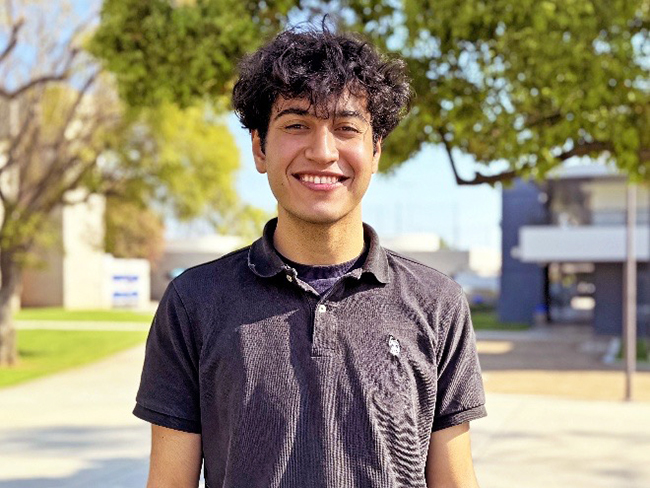Changing as they stay the same
By John Pixley
It wasn’t there—the building. It wasn’t there anymore. The building had been there a few days earlier or was it the day before? Now, suddenly, there was only a wall or two and a huge pile of rubble. It looked like there had been a catastrophic earthquake right at that spot. Or an instant, if messy, Greco-Roman ruin.
There had been a fence around Ducey Gym—or what used to be called Ducey Gym—at Claremont McKenna College for quite some time. But it was still a shock a few weeks ago when, turning onto Sixth Street, I saw that the large gymnasium that had been there for decades was gone. Poof!
No more.
History. A memory. A picture.
I knew that the lovely swimming pool at Scripps College where I spent hundreds of happy summer afternoons was also a memory and had been for many years. But it was still weird, if not a shock, when, not long before Ducey Gym disappeared, I ventured onto the northeast portion of the Scripps campus to where the pool used to be and found myself surrounded by attractive residential units. There was a small waterfall, lending to a nice, resort-like vibe, but there was definitely no swimming pool there.
Not only did I know that the pool was long gone, I knew that another swimming pool had been built not far from the site, as part of an impressive athletic facility, with well-groomed fields and a handsome building. Still, it was a jolt seeing this all up close and realizing that the old pool really wasn’t there.
It was even more of a jolt a few years ago when I saw that the pool at Harvey Mudd College, where I also spent a fair amount of time, especially after the old Scripps pool was closed, was replaced by a large building. I’m not even sure when it was gone—it seemed to happen overnight—and I still have a hard time not picturing the pool, rather than the building, standing out along Twelfth (now Platt) Street. Maybe this is because I grew up hearing my father talk about swimming there every day at noon, rain or shine, when he taught there.
Now the really remarkable thing is that when I was a very young child, before going to the Harvey Mudd and old Scripps pools, my family would go swimming at a pool at CMC, which used to be where Ducey Gym (now) was.
On the same visit—when I saw what was where the Scripps’ pool used to be—it was nice to see that the garden with the wall on which departing graduates have painted messages over the years still exists on another part of campus. Some of the messages date back to the 1920s and 1930s.
And it is nice to see that, even with the old pool not there and with the new housing units and the new athletic facilities, Scripps is still arguably the loveliest of the colleges in Claremont, with its gardens and courtyards and Mediterranean architecture. This isn’t to say that there aren’t plenty of very pleasant spots on the other campuses.
The wall at Scripps with the class messages from the last 80 or so years is a reminder that the colleges are still here, still carrying out their noble mission, still a vital and integral part of Claremont. This weekend, with all the commencement exercises and speeches and proud parents and friends, and with another group of students writing on the wall after spending a critical, enriching part of their lives here in Claremont, is likewise a reminder of this.
As the wall and the graduations show quite eloquently, this is the case even as Ducey Gym has been torn down, even as a major new science building (or complex?) is going up at Pomona College, even as much of the Harvey Mudd College campus is different. Even as dorms change, even as swimming pools and buildings disappear, even as there are areas of the campuses that are unrecognizable or are becoming unrecognizable (whether eventually or over a weekend), students keep coming and students keep going with their lives shaped and forever changed by their years here.
These changes tend to be for the better, as with nicer housing or with improved laboratories. No doubt they are a big part of why the students keep coming. No doubt they are a critical factor in the colleges’ mission and renown.
Whether or not they are for the best, these changes are sometimes not easy. I still miss the old Scripps pool with its cozy garden-like setting and mosaics and, as I said, can’t quite believe that the Harvey Mudd pool where my dad swam for decades is gone.
Another uneasy change at The Colleges is the retirement of Leonard Pronko after teaching for an incredible 57 years—longer than my life—mostly in the theater department at Pomona College. This surely isn’t a change for the better but, as was noted at an event two weeks ago, there is great gratitude that he will still be in Claremont and still with an interest in the theater program at The Colleges.
I wrote here in the fall that Mr. Pronko is all but a legend at Pomona College, if not in Claremont. He is best-known for his expertise in and direction of Kabuki productions. For most of my life in Claremont, I have been aware of his work in the theater department, which began a few years after his arrival at Pomona, and also included many works by European playwrights like Ibsen and Faydeau. That he will no longer be doing this is something of a jolt. I find it strange and sad.
But the celebration earlier this month was entirely appropriate. Mr. Pronko was elegant and eloquent even as he said that demonstrating Kabuki “is too hard on my knees,” in joyful conversation with Thomas Leabhart, another longtime faculty member of the theater department, and Sam Gold, a 2011 Pomona College graduate who was taught and directed by Mr. Pronko and Mr. Leabhart and who has gone on to do theater work all over the world. It was another reminder of the comings and goings that are very much a part of The Colleges’ ongoing, vital work.










0 Comments